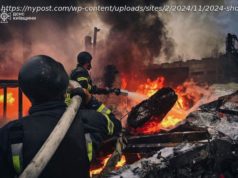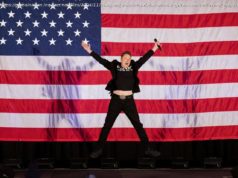President Donald Trump is finally in full-scale cleanup mode after his summit debacle with President Vladimir Putin — but the credibility of his new critique of Russian election interference is being undermined by his unrepentant and conflicting statements since he got home from Helsinki.
Trump was asked by Jeff Glor of CBS News if he held the Russian President responsible. He replied: «I would, because he’s in charge of the country. Just like I consider myself to be responsible for things that happen in this country.»
But he would go no further than that rather indirect indictment of the Russian leader when Glor asked whether Putin was telling the truth when he made what the President described as «extremely strong and powerful denials» of involvement.
«I don’t want to get into whether or not he’s lying. I can only say that I do have confidence in our intelligence agencies as currently constituted,» Trump told Glor.
So yet again, in an interview in which he lashed President Barack Obama, past leaders of the intelligence community and the media for peddling «fake news,» Trump declined to uncork unequivocal criticism of Putin. His reticence fit a pattern in which he has long been solicitous of Putin and has balked at criticizing him. His hesitation will only add to growing questions — that were once whispered in Washington but now are being openly discussed — about whether the Russian government really does have compromising information on Trump.
Trump did say he was very strong in private with the Russian leader, saying «we cannot have this,» referring to future election interference.
On that point, America will have to take Trump’s word for it, since he declined to deliver even that message in public to Putin during their news conference, in which he instead threw US intelligence agencies under the bus.
A presidency still stuck in Helsinki
Trump’s interview came on another day of head-spinning reversals, ambiguous statements and ham-fisted cleanup efforts by the White House that only fueled the mystery of what had gone on in his closed-door, one-on-one meeting with Putin in the Finnish capital on Monday.
In many ways, though he has been home two days, Trump’s presidency is still stuck in Helsinki, and the more the White House tries to get out of the mess, the deeper in it gets.
The President plunged into new controversy on Wednesday when he was asked by a reporter if he believed that Russia was already messing with the 2018 midterm elections, after Director of National Intelligence Dan Coats said last week that » the warning lights are blinking red again.»
«Thank you very much, no,» Trump replied.
Once again, the President set off a media frenzy after apparently dealing a humiliating repudiation to Coats, and after preferring the word of Putin to the nation’s top spy during his news conference in Helsinki.
But White House press secretary Sarah Sanders appeared several hours later with the latest in a series of increasingly inventive, yet hard to believe, rationalizations for Trump’s comments.
» The President was saying ‘no’ to answering questions,» Sanders said.
It was almost possible that in the hubbub of a press availability Trump had done just that — yet his decision to go on answering questions appeared to undercut Sanders’ explanation.
And videotape of the moment when Trump got the question appeared to show he was indeed intending to answer it.
Month after month of obfuscation and the creation of alternative realities by the White House mean the administration has squandered the benefit of the doubt.
The best-case scenario that can be drawn from the last few days is that Trump is having trouble expressing what he really thinks. The worst case is that he is revealing his sincere beliefs — but his White House is trying to reframe them for political reasons. Either scenario is troublesome, since rhetorical precision can be crucial for Presidents in a time of crisis, when words really matter.
Days of botched backpedaling
Wednesday’s cleanup effort was also viewed with more skepticism because of Trump’s equally difficult-to-believe backpedaling a day before, when he insisted he had misspoken when he said before Putin that he didn’t see any reason why it «would» be Russia that hacked the US election.
Trump argued he had meant to say «wouldn’t» instead of «would,» a version of events that sparked derision on social media and skepticism in Washington.
In the same media appearance, Trump read from a scripted statement pieced together after crisis meetings among his staff about the backlash over the President’s news conference in Finland.
At one point, he said that while he accepted that Russia had interfered in the election, others could have been involved too: «There’s a lot of people out there.»
The apparent ad-lib was just the latest sign of how Trump tends to say what he really wants to stay when he is off script, and is one reason why many people tend to discount more formal media appearances, like the CBS interview on Wednesday.
It is a measure of the shock and dismay that are still festering in Washington after his performance in Finland that for once Trump is finding it impossible to change the subject.
Usually, the President is a master of diversion, of throwing smoke over an error by triggering a new political or cultural outrage or simply surfing the wave of the chaos he has brewed, while the rest of Washington is drowned in his riptide of controversy.
The President did try to stir up a new, more profitable outcry on Wednesday night, returning to a theme that has been a reliable lightning rod in the past.
«The two biggest opponents of ICE in America today are the Democratic Party and MS-13!» Trump tweeted, though his inflammatory rhetoric failed to break through saturation news coverage on Russia.
If history is any guide, all the controversy in Washington over Trump and Russia will fail to hurt him with his faithful political base, who view negative media coverage of him as evidence that he is battling the establishment forces they elected him to fight.
The President may also be insulated by his relentless attacks on the credibility of US intelligence agencies over the Russia drama and the «witch hunt» he says is being led by special counsel Robert Mueller.






